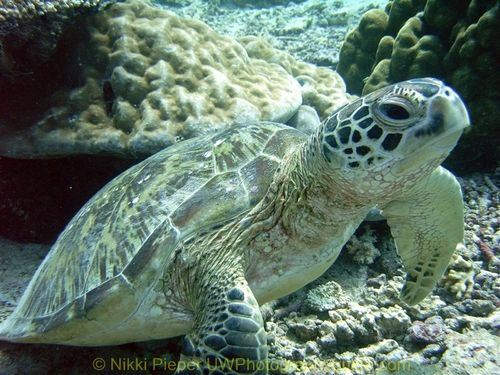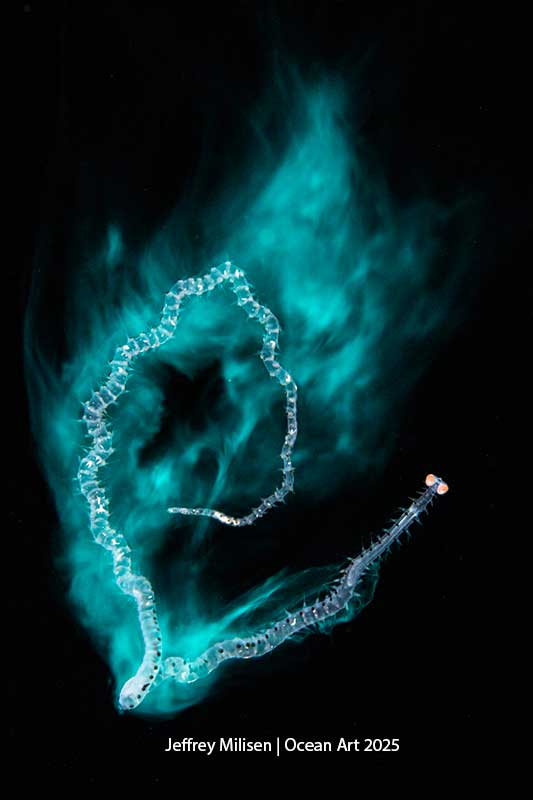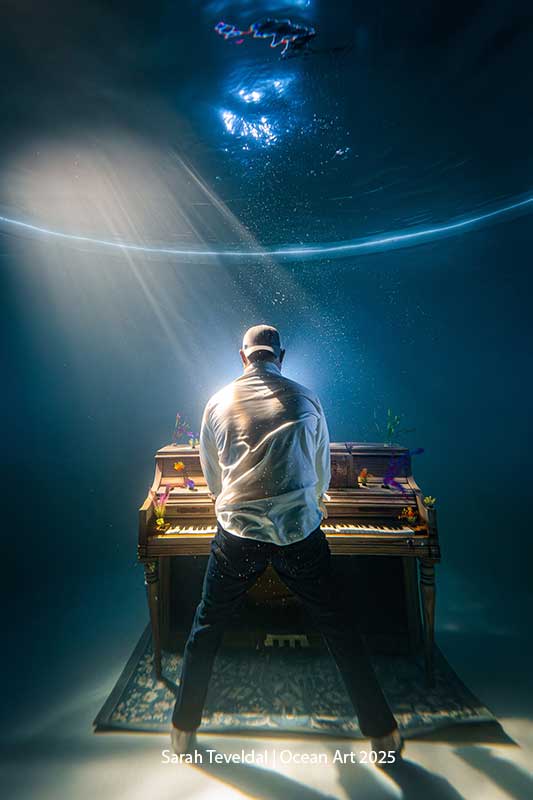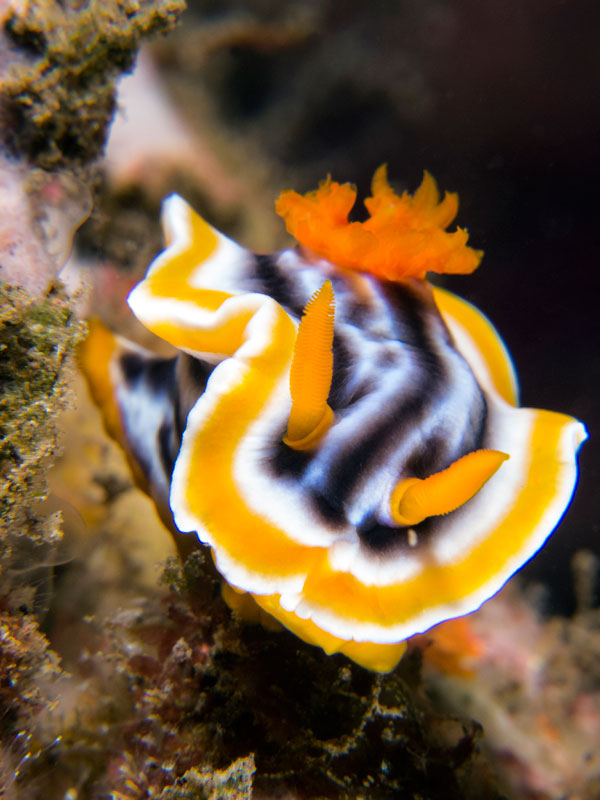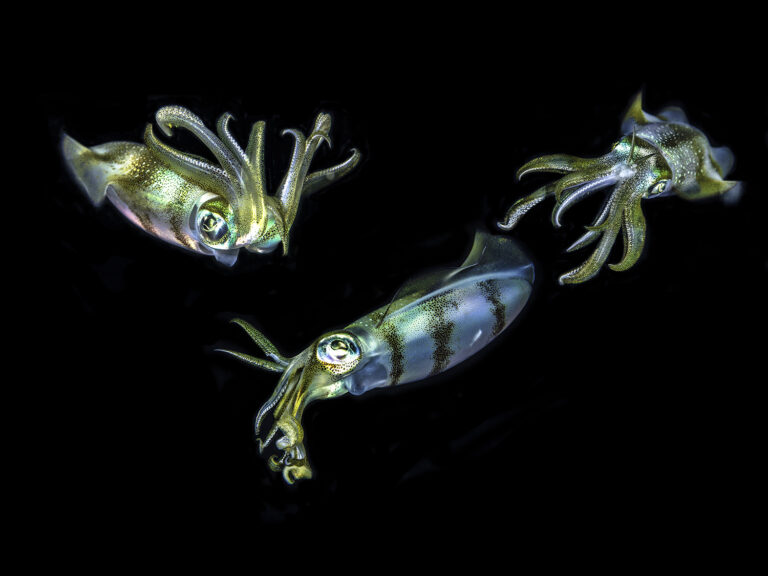Sipadan History and Upcoming Underwater Camera Ban

Sipadan History and Upcoming Underwater Camera Ban
Changes for Underwater Photographers Wanting to Dive Sipadan
By Travis Ball
Turtle in Sipadan, photo by Nikki Pieper
Sipadan is widely recognized as one of the best scuba diving locations in the world. With more than 3,000 fish species and hundreds of coral species, this reputation should come as no shock. A diver visiting the area can expect to see green and hawksbill turtles, massive schools of barracuda, and larger pelagic animals like scalloped hammerhead sharks, manta and eagle rays and the occasional whale shark.
History of Sipadan Diving
Living corals growing on top of an extinct volcanic cone formed the island of Sipadan thousands of years ago. It’s location in the heart of the Indo-Pacific Basin places it in the center of one of the most diverse marine habitats in the world. Widely unknown until the 1990s, it was a visit by Jacques Cousteau that really brought attention to the island. The release of Borneo: The Ghost of the Sea Turtle in 1989 brought Sipadan to the attention of millions, and you can’t go to a website about Sipadan these days without seeing the familiar quote: “I have seen other places like Sipadan, 45 years ago, but now no more. Now we have found an untouched piece of art."
By the early 90s, there were dive resorts crammed onto the island catering to ever increasing numbers of divers looking to experience the pristine environment. This massive influx of people, boats and general diver traffic quickly started to have an effect on the coral and reefs. By 1992 a coral reef conservation officer with Britain’s Marine Conservation Society, Dr. Elizabeth Wood, began noticing obvious deterioration in the quality of the reefs. In 1997 the Malaysian government stated that they would begin limiting the number of tourists visiting the island, but they failed to enforce the statement.
Moving resorts off Sipadan island
In 2004, the Malaysian government instructed everyone currently operating resorts on the island to leave by December 31st, 2004. In 2006, in an attempt to further protect the ecosystem, the Malaysian government proposed to include the island in a marine protected area called Sipadan Island Marine Park. At this point they instituted a permit system limited to 120 divers per day and controlled by the Sabah Park Management organization, although it was not fully enforced until mid-2008. A permit is required only to dive on Sipadan island, not for the numerous other dive sites in the area. There is more info on the permit system here.
Diving Sipadan Today
The lack of resorts on the island mean divers looking to visit the Sipadan Island Marine Park must use one of the neighboring islands as a base. Generally, this will be Mabul, although Semporna has a number of lower priced operators who are also being given a small number of permits. There is also a resort on Kapalai. The real issue for divers, however, is the 120 daily permits and the way they are issued.
Most resorts require a minimum stay in order to guarantee a day of diving in Sipadan. Some work on a first come, first serve basis while others institute a lottery system, both of which are subject to possible staff preferences and alteration. Stories of one group staying 8 days with 1 day of permits while another group staying 5 days with 4 days of permits have been heard, as you can see here. Visiting in low season, or for a longer period of time, will increase the number of days you can get a permit.
New Camera Ban Coming Soon
When the permit system went into effect, so did a ban on gloves and fish pointers. These items were thought to increase the likelihood of damage to the reef and are not permitted. A Sipadan resort owner told us that a recent study by an International NGO has now found that Underwater Camera users are “a significant contributor to coral damage at Sipadan." The government authority in charge of Sipadan has already declared that an underwater camera ban will go into effect, but will not give an implementation date. Several Sipadan dive operators have told us to assume that the ban will go into effect with little notice.
The only way around the ban on underwater cameras appears to be a special exemption for professional photographers. In this instance, a professional photographer is someone who has a proven record of shooting images for magazines, newspapers, television and more. The resort running your trip would likely help you go through the process of requesting your exemption, but since the ban is not yet in effect, it is difficult to say how this will work.
We also read that divers going to Sipadan will be required to have an advanced open water certification, or a minimum of 20 dives – effectively saying "no newbies".
Summary for Underwater Photographers
With a ban on underwater cameras looking likely, this may be a perfect time to squeeze in a underwater photo trip to Sipadan, if you can travel on short notice. Of course, if you think you’ll qualify for the exemption, there’s no need to worry.
How do you feel about the new ban on underwater cameras in Sipadan? Do you think it is a good idea? Leave your opinions in the comments.
About the Author
Travis Ball is a travel blogger and underwater photographer who recently finished 30 straight months of travel. He believes everyone should enrich their lives with travel and all the experiences it has to offer. His photography and writing can also be seen at his blog http://flashpackerHQ.com.
Further Reading
Where to Buy
Please support the Underwater Photography Guide by purchasing your underwater photography gear through our sister site, Bluewater Photo & Video. Click, or call them at (310) 633-5052 for expert advice!
